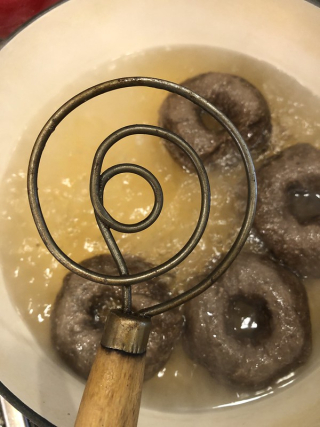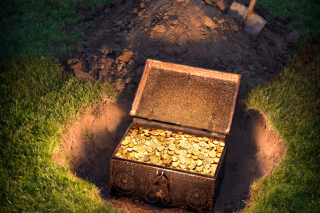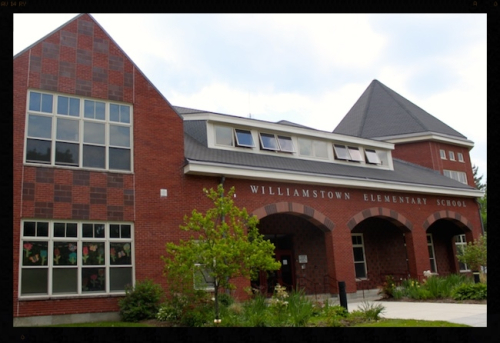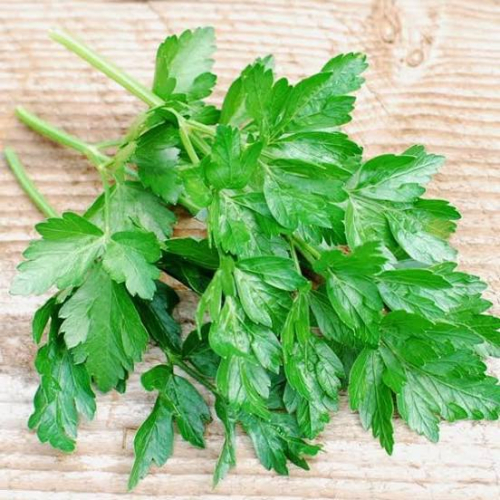Rachel Barenblat's Blog, page 37
April 29, 2021
My mother's daughter
Dear Mom,
When did you first start using your nebulizer? I think it was one of the first tools they provided when you were first diagnosed with bronchiectasis. Or maybe it was when you were diagnosed with the mycobacterial lung infections we didn't yet know would prove incurable. I can still hear the machine's whir and hum. "Come talk to me while I do my nebulizer," you said sometimes. The TV would be on. You'd remove the tube from your mouth to respond, gesturing with your perfectly manicured nails.
I'm pretty sure I remember you using it in the car on the way to the medical center. This was early on in your years of illness, too; you were still well enough to get up and get dressed and drive all the way up I-10 to the medical center complex. Your nebulizer had an adaptor so it could be powered by the cigarette lighter on your car. (Remember when cars all had cigarette lighters?) Somehow I suspect they intended patients to use it while someone else was driving, not while they themselves were at the wheel.
This morning I drove to Surgimed in North Adams, a place where I'd never been. Their display floor is full of walkers and machines and the kind of standing guardrails that go around a commode -- things that no one wants to need. People say that we should all care about disability rights, because if we live long enough, we all become disabled. You would have made a face at that. You never wanted to use that kind of language. Make hay while the sun shines, and don't talk about the puny days.
I left with a brand-new nebulizer in its box, and a little baggie containing its plastic tubing and mouthpiece. I remember your nebulizer pieces drying on a clean dishtowel beside the kitchen sink after every use. Like the pieces of the breast pump I used when I was pumping milk for the baby who's now a strapping adolescent of five foot six. With teal hair and his new favorite purple plaid hand-me-down shirt, he could be in a punk band. I can only imagine what you would say about that.
I can certainly imagine you saying tartly that you wanted me to take after you in other ways, not the lung problems.
Yesterday I called to make an appointment for my first manicure since the pandemic started almost fifteen months ago. A few moments later I reached for my phone in my pocket. It was playing a number-out-of-service message, with your picture icon in the corner. Did I accidentally dial you after calling the Clip Shop? Or was that you, trying to call me? Well, here's the news: I have a pulmonologist and a nebulizer and a manicure appointment. I am your daughter in every measurable way.
There's a dazzling yellow goldfinch in the tree outside my window. It matches the dazzling yellow tulips behind the rock. There are tulips on my dining table, too, striated in yellow and red. You would like those. Like the ones we used to see on Fifth Avenue. I wish we could walk arm in arm down the city sidewalk. When I was a kid it seemed to me that those sidewalks sparkled, as though shot through with mica flakes, something that glinted and shone if you looked at it just right.
Love,
Rachel
This letter feels like a good time to mention Crossing the Sea, the collection of poems I wrote during the first year of mourning my mom. It was published in December by Phoenicia Publishing (thanks Beth!) and is available wherever books are sold.

Questions
What can I do about India?
Will it get that bad here again?
Are we safe?
Can I trust new CDC guidance?
If I see someone without a mask, can I assume they're vaccinated?
(What if they're an anti-vaxxer?)
And what about kids?
Did you see the article about the family that got their shots and flew to Hawai'i and then their eleven year old died of COVID?
Do you know how old my child is?
How does this new guidance change what we're planning at our synagogue?
Is it too soon to make decisions about the High Holidays?
What are the spiritual impacts of spending a year unable to sing with others when singing in harmony is the best way I know to encounter God?
When we start gathering in person again, will people come?
Has my kid adjusted to eating lunch on a towel on the floor six feet apart from his schoolmates?
Will I see my father again?
Did we make it?
Are we really on the other side?
If we're two weeks vaccinated, are we really safe?
If we're safe, then why do I feel so exhausted?
After the long, isolated winter why does spring make me want to cry?
After fourteen months of feeding myself, why am I staring at a pantry full of ingredients unable to muster the creativity to cook tonight?
What are the spiritual impacts of spending fourteen months guarded against grief, determined to keep going, sacrificing human contact in order to protect each other from an invisible virus we might or might not have been carrying?
Did we make it?
When will there be time to grieve?

April 24, 2021
Unanswered

I've had this kitchen tool for as long as I've had my own kitchen. I don't remember how it came to be mine. It belonged to my grandparents -- the only set of them that I knew, my mother's parents, who lived in San Antonio throughout my childhood. Eppie was Russian, and Lali was Czech. All through my childhood they lived in a condo not unlike this one.
I know that he loved to cook. He's the one who taught me to make matzah balls. He used to make little knotted rolls, too, and knedliky (Czech bread dumplings, made with stale white bread). When I would spend the night with them, sometimes they would treat me to the sugary cereals my mother didn't allow, and sometimes he would make salami and eggs.
This tool has a smooth handle, satisfying to the hand. There's a burn mark from some long-ago scorching-hot stove. The iron twists and curls. It's beautiful; I think in one of my early apartments I hung it on the kitchen wall as an ornament. Today it was the perfect tool for flipping pumpernickel bagels in their simmering bath before putting them in the oven to bake.
Learning to make bagels was one of the projects I planned for myself, imagining the long isolated pandemic winter. I baked loaf after loaf of rye bread, and soft golden challah almost every week. I kept putting off the bagel project. Maybe on a subconscious level I wanted to keep a treat for myself, something to look forward to in this year of solitude and grief.
But the winter is past. The snows are over and gone. Every day more people here become vaccinated. (Though in India, the pandemic is raging worse than ever...) Baking bagels today felt like an act of hope. I don't need to defer the tiny sweetness of trying a new recipe lest I need that sweetness to get me through some other, worse, day than this.
I'm pretty certain my grandparents never made bagels. I grew to love chewy pumpernickel bagels because my parents brought them back from New York City. They used to take an extra duffel bag when they traveled there, and on the day of their departure they'd fill the duffel with paper bags of New York bagels and freeze them as soon as they got back to south Texas.
A cursory internet search suggests that this is a Danish dough whisk. How did my grandparents come to have a Danish baking tool in their kitchen? Did they pick it up as a souvenir on their travels, or from a fancy kitchen store, or someplace secondhand? I wonder whether my mother would've known. There's a quiet melancholy in questions there's no one left to ask.

April 15, 2021
Spring
When twigs swell
and begin to bud
and leaves emerge
chartreuse and tender
I'm proclaiming
what I nurtured
in secret silence
through the long winter
and sleep's cold blur.
Golden light,
I missed you so much
it hurt. I answer
your beauty
with my own,
vulnerable
and shivering.
My yearning for you
is prayer.
I originally titled this draft "The tree speaks," but that felt pretentious. Who am I to imagine I know what a tree is thinking?
When I sit at my desk in my study, there are several trees in view of my window. One, some kind of maple, has begun to leaf in deep red. Two others have begun to leaf in the implausible chartreuse that I think of as the truest sign of northern spring.
New leaves seem so fragile and tender to me, especially knowing that there's a forecast of snow here tomorrow.
The end of this poem bears the imprint of this week's Baal Shem Tov text study with my Bayit hevre. We studied a beautiful text from the Besht arising out of parashat Tazria, which culminated in the idea that the deepest yearnings of our hearts are themselves prayer.

April 13, 2021
Hidden treasure and what comes next
Last year at the start of the pandemic, my hevruta partners and I studied a text from the Piaceczyner (the rabbi of the Warsaw Ghetto) about this week's Torah portion, Tazria-Metzora. His jumping-off point is a verse about houses contracting tzara'at -- some kind of contagion -- and the need to quarantine such a house for a period of time.
The commentator Rashi explains that there's treasure hidden in the walls of the afflicted house, and when we knock down the walls, we'll find the treasure. But the Piaceczyner is puzzled: if there's treasure, then why does Torah tell us to wait for seven days before we can knock down the walls and find the treasures hidden therein?
His first answer makes me laugh: well, we can't exactly know why Torah says what it says!
But then he says, if we look deeply we can recognize that in everything that happens to us, there's a spark of God's intention for goodness. Even if the situation we're in is a difficult one, God intends goodness for us in it somehow.
"There may be times when we can't access schooling for our children, or praying together in community, or going to the mikvah," he writes. A year ago, my first thought was: that's us, right now! Our kids are home from school. The shul building is closed. Everything is closed: to protect us from each other, from the virus we might not know we're carrying.
The Piaceczyner said there would be treasures to be found in quarantine. I couldn't yet imagine what they would be.
This year, these lines land entirely differently with me.
It's still true that we still don't have access to our former infrastructure for Jewish life. Synagogues aren't meeting in person, Hebrew school isn't meeting in person... And yet -- look at everything we've learned over the last year.
Our synagogues are open, even though our buildings are not -- because the synagogue isn't the building, it's the people and the connections among and between us, and our traditions, and our Source. We've learned how to pray together over Zoom, and how to make our home spaces into sacred spaces. We've learned how to build community and connectivity online when we can't safely be in person.
We've learned how to educate our children online. Hebrew school is happening: online. Services are happening: online. We've learned how to share funerals, b-mitzvah celebrations, shiva minyanim, even batei din (conversions) online.
We've learned to find sweetness in glimpsing each others' households -- our dogs and our cats, the children and elders who share our homes -- when we gather for learning or prayer. As a member of our Board said to me after Rosh Hashanah services, "Seeing people at their tables and on their couches and with their coffee cups made it feel like we were all in each others' homes -- I felt like I was getting to know people in a different way because I got to see them where they live." Who could have imagined that, before the pandemic?
We've learned how to embrace video, and how to enliven our davenen with art and images. This doesn't make up for the fact that we can't embrace, and we can't sing together in harmony, but it brings a different kind of hiddur mitzvah (beautifying the mitzvah) to our spiritual lives.
And we've learned how digital offerings can more easily include those who are immunocompromised, or hospitalized, or disabled, or homebound. We've learned how having our digital doors open makes our synagogues more accessible than they ever were before.
The Piaceczyner insists that even when something appears to us to be a plague, God intends goodness in it. We might just need a while to find the hidden treasure in whatever's unfolding. As we prepare, in time, to return to our former Jewish infrastructure, I want to ensure that we do so in a way that doesn't lose the new treasure we've found. Here are some of the big questions my colleagues and I are asking:
How can we create hybrid offerings so that as some of us feel safely able to gather in person, others can be full participants digitally?
How can we continue to embrace the gifts of multimedia and visual art once we're back in the building again?
How can we welcome and include people joining us digitally, without creating a future in which no one bothers to "come to shul" because it's easier to just stay home?
How can we use what we've learned this year to help us become more accessible, more equitable, and more inclusive?
How can we use what we've learned this year to help us build and sustain community across distance, whether it's the distance between the shul and a hospital bed, or the distance between here and someplace further away?
How might our sense of community expand and adapt if people keep participating in services and learning and festival observances online -- if you don't have to be in Northern Berkshire to become a part of CBI?
And how can we honor the treasures of this pandemic learning while also honoring the very real losses of this incredibly difficult year?
We don't know the answers yet: we're figuring them out as we go. The crisis of COVID-19 offers us an opportunity to dream big and think creatively about what it means to do Jewish together now.I hope you'll grapple with these questions too, and let me know your answers.
This is the d'varling I offered at Kabbalat Shabbat services (cross-posted to my From the Rabbi blog.)

April 5, 2021
Back to school
This morning the alarm went off at seven. I made breakfast for my sleepy kid, finished packing his lunchbox, reminded him to put things in his backpack. A few minutes after eight I drove him to school. All of this used to be our ordinary routine. Today everything about it felt surreal. It's been more than a year since our school mornings followed this pattern.
A few things are different than they were last time he was going to all-day, every-day, in-person school. Masks, of course. The Chromebook and charger that he now carries to and from school, lent to him by the school at the remote start of this school year. Today each kid brought a large towel, because lunch will be picnic-style, seated on their towels six feet apart.
This is the fifth paradigm shift in his fifth grade year so far. (Two weeks of remote school to begin the year; then some weeks of hybrid learning; then all-remote for a while in the winter; then back to hybrid; and now this.) Will this "stick," or will rising cases change things yet again? It's hard to trust that he'll really be in school every day. I don't believe it yet.
It feels strange to be working from home without him in the next room. It feels strange that I can't overhear his schooling anymore. I won't know what book his teacher is using for read-aloud now, or listen to his bass lesson, or hear him grumbling about group projects. Now all I'll know about his days will be whatever little he tells me when I pick him up.
A year ago when school closed for (what we thought would be) two weeks, being with my kid all the time felt overwhelming. Now that he's back in full-time in-person school, being apart is what's overwhelming. It's like when he first went to preschool at not-quite-three and suddenly my days opened up. The condo feels like an empty nest this morning.

March 29, 2021
Essay on allyship in Chaver Up!
 I was humbled and honored to be invited to contribute an essay on allyship to this new daily Omer series... also soon to be a book, featuring a spectacular range of voices, which will become available on Wednesday / Trans Day of Visibility.
I was humbled and honored to be invited to contribute an essay on allyship to this new daily Omer series... also soon to be a book, featuring a spectacular range of voices, which will become available on Wednesday / Trans Day of Visibility.
Deep thanks to Congregation Beit Simchat Torah (and their scholar-in-residence R. Mike Moskowitz, my dear friend and Bayit cofounder) for putting this together and for inviting me to take part. Here's how my essay begins:
Allyship means placing myself in the shoes of someone experiencing marginalization or oppression, “taking on their struggle as my own,” recognizing where and how today's structures give me privilege that they don't have, and trying to transfer the benefits of my privilege to them. Allyship asks me to be active in standing up for those who are oppressed or marginalized. And allyship asks me, when I inevitably err, to take responsibility, to apologize, and to learn better and try better next time.
One way to understand allyship is through a Mussar lens. Mussar is a Jewish practice of self-refinement through focusing on and developing our middot or soul-qualities. When I think of allyship, the middah that comes to mind is achrayut, “responsibility.” The term is related to the word achar, “after.” We need to pay attention to what happens after we act (or refrain from action). If I ignore injustice or power disparity because I’m not the person being harmed, what happens after? If I speak or act (or fail to speak or act) in a way that causes harm, what happens after? Achrayut reminds us of our ethical obligation to keep impacts and outcomes in mind.
But put a different vowel in that word, and achar becomes acher, “other.” That suggests another, equally important, implication of achrayut. When we care for each other, we express and strengthen our achrayut. Achrayut means actively taking the responsibility of caring for another, or an “other.” Achrayut means centering the needs of the other. Unlike the term “allyship,” achrayut doesn't presume a power differential between the person with needs and the person with privilege who's centering those needs. Still, the middah of achrayut can fuel our allyship...
Click through to read the whole essay on FB. (And follow Bayit on FB to see each day's essay as it is posted.)
And in a few days you'll be able to purchase Chaver Up! 49 Rabbis Explore What It Means To Be an Ally Through a Modern Jewish Lens, edited by Rabbi Sharon Kleinbaum and Rabbi Mike Moskowitz, coming in eBook and paperback very soon.

Four flavors
A crisp sprig of Italian parsley dipped in salt water. Vibrant and green, salt giving way to savory as the stem crunches. It's the third step of the seder, karpas: greens representing spring and new life, salt water representing the tears of slavery in ancient days and our tears at injustice even now. It's a gustatory hyperlink. The minute that first bite hits my tongue, I feel it in my bones: change is coming. If we wait until we feel fully ready we might never take the leap at all. It's time to go.
Storebought matzah spread with horseradish is another one. Matzah, at once the humble hardtack of our affliction and the hasty waybread of our freedom. Maror, evoking the bitterness of slavery, the sharpness of oppression. The cracker shatters with a crunch, the horseradish stings the nose. This year, its sharp scent is another reason for gratitude: I don't have anosmia, I don't have COVID-19. It's a humble taste, a simple taste, and one that speaks volumes. We're leaving this narrow place.
My spoon carves through a matzah ball: light and fluffy, resting in hot broth. My grandfather taught me to make them years ago: beating the egg whites until fluffy, then folding in the egg yolks and oil, the matzah meal and white pepper. Every year after I've made the batter I panic, fearing that I mixed it too much and it's become dense. I chill it, already planning how I'll make a second batch if I need to. Every year after twenty minutes of simmering, the kneidlach float like soft clouds.
This year I added a new-old flavor to my table. I think my father's mother (peace be upon her) used to make home-made gefilte fish. The stuff in jars is unappealing, but I wanted to try it from scratch, remembering generations who stretched what little they had to make a feast worthy of Shabbat or seder. I didn't bring home a live carp; I used a recipe from the Times. The delicate quenelles of minced tilapia and salmon, simmered in a light broth of fennel and aromatics, are a revelation.
These are some of the most evocative flavors I know. They link me with last year's seder, and the year before, and my childhood seders at my aunt and uncle's house in Dallas, and their childhood seders...all the way back to the sages in the second century who asked why this night is different from all other nights. They too ate unleavened bread, and dipped herbs in salt water tears, and let the maror of their era shock their sinuses and their hearts into readiness to go free.
See also: Parsley dipped in tears, 2017

March 26, 2021
Third Pesach Without You
You never removed leaven.
(Salt, sugar, and oil: sure,
but that was different.)
This year the work of
finding every last crumb
is daunting. I take respite
in the seder prep I know
you used to do, polishing
the silver until it gleamed.
Okay, let's be real, you
assigned it to the housekeeper,
but your table shone.
Humming seder psalms,
I rub silver polish into
the pitcher we used for
pouring water on our hands
when we returned from
your funeral. I'll fill it
with ice water, and
your small silver creamer
with our salt water tears.
Removed leaven. Many Jews remove all leaven (or leaven-able material) from our homes during the seven days of Pesach.
Pouring water on our hands. There's a tradition of placing a pitcher outside a shiva home so that when mourners return from the burial, so that we can ritually wash our hands before entering.
Salt water tears. One of the ritual items on the seder table is salt water, representing the tears of our ancestors during slavery.
This poem is (yet) another in the vein of Crossing the Sea, the collection of poems I wrote during the first year of mourning my mom. It was published in December by Phoenicia Publishing (thanks Beth!) and is available wherever books are sold.

March 21, 2021
Napkins
Mom, I'm using the cocktail napkins
you gave me when I moved out
on my own, simple and grey
with my single name in red, an
echo of the ones you ordered
when I married.
They've been on a shelf
this long pandemic year, but
it's another COVID birthday: time
to celebrate I made it through,
at least so far -- even vaccinated
the virus could strike. This year
I learned the word anosmia.
I breathe deep beside the coffee pot:
I can't take scent for granted.
I still wish I could text you
the seder menu I'm planning,
a photo of the spring flowers
a friend brought me
so my table would shine.
This poem is another in the vein of Crossing the Sea, the collection of poems I wrote during the first year of mourning my mom. It was published in December by Phoenicia Publishing (thanks Beth!) and is available wherever books are sold.

Rachel Barenblat's Blog
- Rachel Barenblat's profile
- 6 followers






